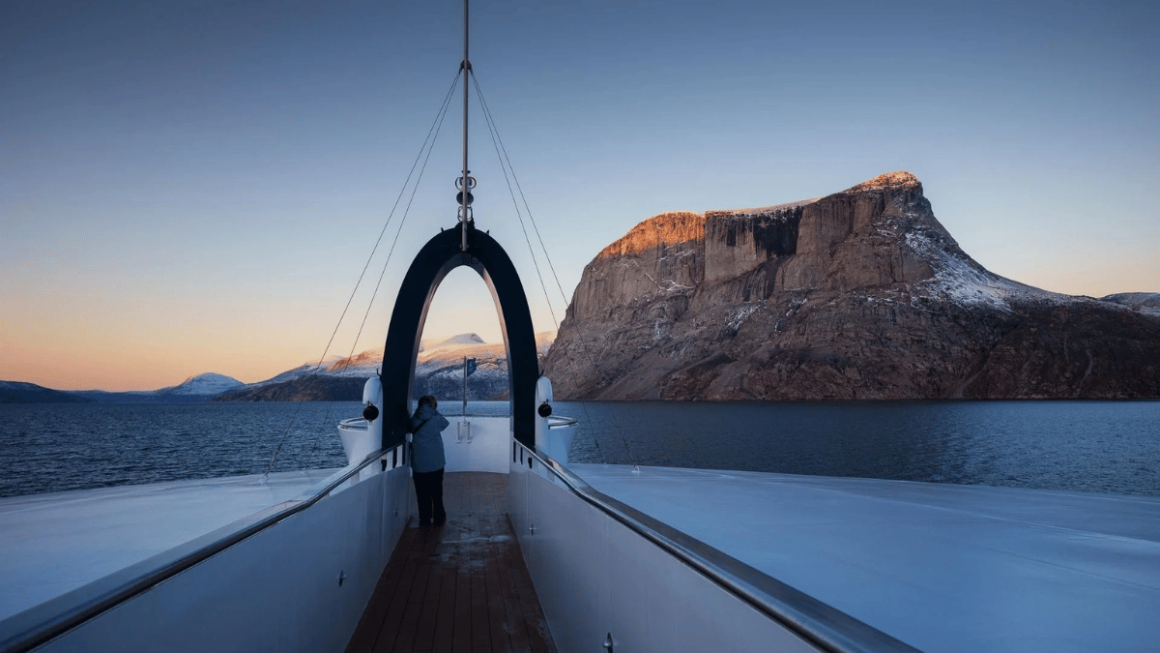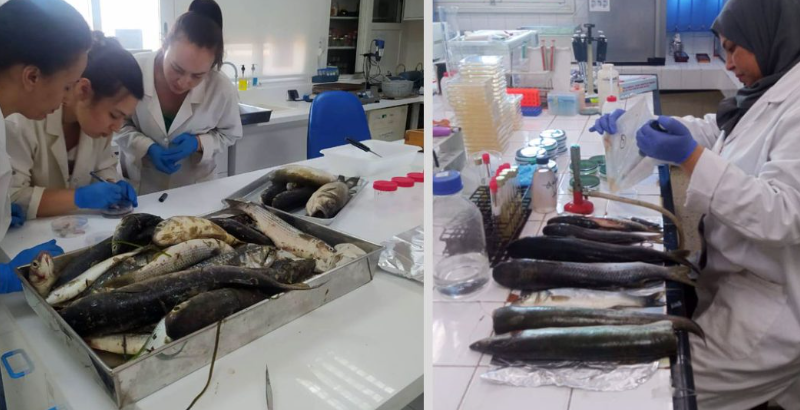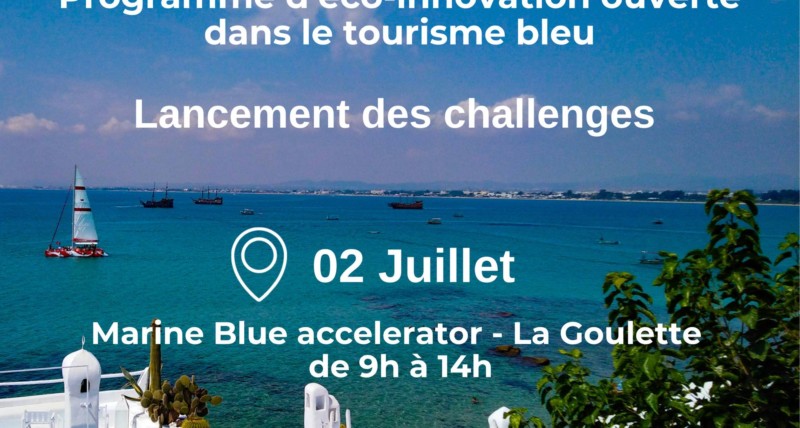The pioneering Cruising4Oceans initiative collects environmental data in remote areas, involves guests in scientific activities, and more.
On board Swan Hellenic’s elegant ships, science and tourism sail side by side across some of the planet’s most isolated regions. The man responsible for uniting these two worlds is naval engineer Mario Dogliani, an Italian with nearly four decades of experience in the maritime sector. Founder of SDG4MED – a foundation dedicated to sustainable development in the Mediterranean – Dogliani saw in the revitalization of Swan Hellenic a unique opportunity to promote science at sea.
Mario Dogliani
Pre-treatment of water samples | Photo: Mario Dogliani / SH
His professional relationship and friendship with Andrea Zito, the company’s CEO and his former classmate, laid the groundwork for the creation of Cruising4Oceans. In partnership with the European Union’s Mission Ocean, the project transforms the company’s vessels into “ships of opportunity” – vessels that, though not research ships, collect valuable data during their regular routes, often through areas unexplored by scientists. In 2022, Swan Hellenic became the world’s first cruise company to officially join the mission.
Water sample analyzed onboard SH Vega | Photo: Mario Dogliani / SH
Swan Hellenic: Scientific Routine Between Icebergs and Zodiacs
Dogliani often joins Swan Hellenic’s expedition cruises, such as those of the SH Vega, to oversee sample collection and give lectures. His onboard routine adapts to the guests’ schedule: for instance, while they are out on zodiac excursions, he collects water samples and records physical parameters such as temperature and salinity. Meanwhile, data such as atmospheric pressure and wind speed are collected electronically from the bridge.
Though the work doesn’t require a state-of-the-art lab, it is invaluable. “Most of the regions where we operate are not regularly visited by oceanographers. We provide the opportunity to collect data that would otherwise not exist,” he explains. Moreover, Swan Hellenic ships are equipped with a modest but functional lab featuring a microscope, workbenches, monitors, and satellite connectivity—enabling pre-analysis onboard and immediate transmission of data for validation on shore.
From Tourism to Science: The Role of Guests
One of the project’s greatest innovations is the active involvement of guests. Starting from the 2025/2026 season, Cruising4Oceans will expand its citizen science dimension with activities such as:
- Collection of eDNA (environmental DNA) – genetic material found in water, used to monitor species, track biodiversity, and detect invasive organisms;
- Measuring water temperature with portable sensors that transmit data directly to smartphones;
- Recording georeferenced images of wildlife and flora, including plastic waste, via customized apps installed on guests’ phones.
“We don’t expect guests to be scientists. If you are curious and interested in nature, that’s enough. They act as human sensors, which helps expand researchers’ knowledge base,” says Dogliani. During evening lectures—always short and tailored to the cruise itinerary—he presents preliminary analyses and sparks travelers’ curiosity with microscopic discoveries from freshly collected waters.
Science Within Everyone’s Reach, Across All Seas
Swan Hellenic’s initiative goes beyond ad-hoc data collection. According to Dogliani, the real potential of “ships of opportunity” lies in creating a continuous network of mobile sensors, sailing regular routes and enabling the construction of long-term ocean data series. This aligns precisely with the European Union’s Digital Twin Ocean (DTO)—a virtual replica of the seas based on real-time data. Data collected by Swan Hellenic’s ships, once quality-checked, are already being integrated into EMODnet, Europe’s leading marine information repository.
As an ambassador of the European Climate Pact, Dogliani sees this initiative as an example of how expedition tourism can serve the planet:
SH Vega vessel used for onboard surveys | Photo: Courtesy
In addition to enjoying breathtaking landscapes, observing unique wildlife in remote regions, and experiencing the comfort and sophistication of Swan Hellenic’s ships, guests have the rare chance to actively take part in a journey of discovery and planetary care. By engaging in citizen science activities onboard—such as environmental data collection, species monitoring, and water quality tracking—each traveler becomes part of a global movement to protect the oceans.
This is a unique way to travel: with purpose, awareness, and the privilege of contributing to environmental knowledge and preservation—while living an unforgettable experience.




